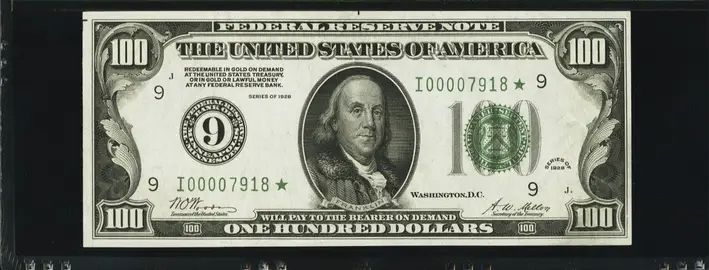
The World’s Economy Driven by Billionaire Powerhouses
The world’s economy has increasingly become intertwined with the ambitions and actions of a few extraordinarily wealthy individuals whose innovations and enterprises have reshaped the foundations of global commerce. Men such as Elon Musk, Jeff Bezos, Bernard Arnault, Warren Buffett, and Bill Gates have not only amassed vast fortunes but have also influenced global trends in technology, trade, finance, and sustainability. Each of their stories begins with humble origins—moments of uncertainty, limited resources, and bold visions that defied conventional wisdom. Through perseverance, innovation, and strategic thinking, these individuals transformed small start-ups into trillion-dollar corporations, altering how billions of people live and work today.
Elon Musk, for example, started his career with Zip2, a small online business directory that struggled to gain traction before being acquired for a modest sum. His later ventures—PayPal, Tesla, and SpaceX—were met with skepticism and financial risk, yet his relentless drive to revolutionize transportation and energy led to unprecedented success. Today, Tesla dominates the electric vehicle market, and SpaceX leads private space exploration, launching reusable rockets and working toward interplanetary travel. Musk’s journey from near bankruptcy to becoming the world’s richest man epitomizes the link between innovation and economic power in the 21st century.
Jeff Bezos’ story follows a similar trajectory of vision and risk-taking. In 1994, he quit a stable Wall Street job to start an online bookstore in his garage—a move many considered reckless at the time. That bookstore, Amazon, evolved into a global e-commerce giant, reshaping the retail industry and introducing cloud computing through Amazon Web Services (AWS), now a backbone for countless businesses worldwide. Bezos’ model of efficiency, customer obsession, and diversification positioned Amazon as one of the most influential companies on Earth, controlling a massive share of online trade and setting new standards for logistics, automation, and artificial intelligence.
In Europe, Bernard Arnault pursued a different but equally powerful path. Known as the “King of Luxury,” Arnault built LVMH (Moët Hennessy Louis Vuitton) into the world’s largest luxury conglomerate through calculated acquisitions and an unmatched understanding of brand prestige. His empire, encompassing more than 70 high-end labels—from Louis Vuitton to Dior—demonstrates how craftsmanship, heritage, and modern marketing can converge into immense economic power. Arnault’s success underscores the influence of the luxury industry, which continues to thrive even in times of global uncertainty, buoyed by growing demand from emerging markets.
Warren Buffett, often described as the “Oracle of Omaha,” represents the wisdom of long-term investing. Starting with modest means, Buffett acquired Berkshire Hathaway, a struggling textile company, and transformed it into one of the most respected holding companies in the world. His investment philosophy—rooted in patience, value, and sound judgment—has made him a model for investors globally. Unlike others driven by rapid innovation, Buffett’s wealth stems from consistency and understanding intrinsic value, proving that steady growth can rival technological disruption in building lasting economic influence.
Bill Gates’ journey began in 1975 when he co-founded Microsoft with Paul Allen. From a small software company, Microsoft evolved into a technology powerhouse that provided the foundation for the personal computing revolution. Gates’ foresight in recognizing the potential of computer software turned him into one of history’s most successful entrepreneurs. Even after stepping back from day-to-day operations, his influence continues through the Bill & Melinda Gates Foundation, which has redirected a portion of his vast wealth toward global health, education, and climate initiatives—an indication of how billionaire influence now extends into philanthropy and social reform.
Together, these titans of wealth have sat atop the global economy for decades, shaping industries, influencing policies, and redefining capitalism itself. Their decisions move stock markets, their companies employ millions, and their innovations set the pace for future technologies. Yet, their dominance also raises critical debates about wealth inequality, corporate monopolies, and the ethical balance between profit and public good. As artificial intelligence, automation, and clean energy reshape the economic landscape, these same billionaires are again leading the charge—investing in AI research, green technologies, and even space colonization.
The anticipated future suggests a world economy even more intertwined with technology and innovation. Artificial intelligence is expected to replace traditional industries, renewable energy will become central to global policy, and data will emerge as the new currency. Musk’s ventures in sustainable energy, Gates’ climate philanthropy, and Bezos’ space ambitions symbolize the next frontier of economic influence. While their wealth continues to expand, so too does their responsibility to shape a more equitable and sustainable world.
From their early struggles to the commanding positions they hold today, these business magnates embody the spirit of modern capitalism—ruthlessly competitive yet endlessly inventive. Their rise from scratch to the summits of wealth is not merely a tale of personal triumph, but a mirror of how innovation, technology, and vision can steer the course of global economic history. The world’s richest men have become not just symbols of success, but architects of a future where power, money, and ideas converge to define humanity’s economic destiny.



Exactly 💯